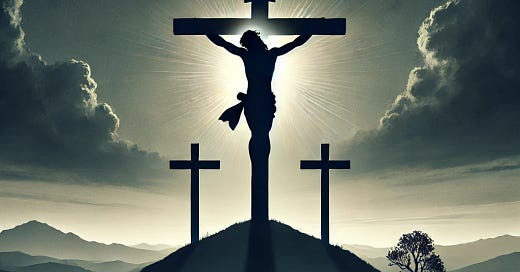Welcome to the Bible in a Year for 2025. Intro to this series and resource links available here, plus here’s how I’m approaching this year.
Scriptures for Today:
Reflection:
One of the challenges of reading through portions of the Old Testament is that we are reading cross-culturally and two to four thousand years into the past. So, it’s difficult to bridge a gap of understanding about how life worked at that time and place and why God issued certain commands that he does. This shows up in the readings for today (as in others too). Incidentally, if you are making a Legacy Bible, don’t feel like you need to comment in the margin of every scripture.
The best resource I know for bridging this historical and cultural gap is (my OT professor) Dr. Sandra Richter’s book The Epic of Eden: A Christian Entry into the Old Testament and/or her Bible study from Seedbed, Epic of Eden, that is based on the book.
Here are a couple of things that stand out to me in the Deuteronomy readings and a thought about a favorite psalm for myself and many.
Fairness to firstborn (Deut. 21:15-17) - This seems like a good example of God taking something that is embedded in culture and undermining it toward the good. If a man has two wives (not the ideal—see Genesis 1-2 for the paradigm) and he loves one over the other, that favoritism is not allowed to impact the inheritance of the firstborn son. A good example living by principles versus playing favorites.
Cursed is anyone hung on a pole (Deut. 21:22-23) - This stands out to me because of the connection to the cross. Paul takes this up when he was trying to make sense of Jesus’ crucifixion. He was working out how Jesus, the perfect Son of God, could be something that the Law deemed cursed: “hung on a pole” (21:23). How could Jesus be cursed? The solution to this conundrum was to see that Jesus took the curse upon Himself in order to conquer sin and redeem humanity. “Christ redeemed us from the curse of the law by becoming a curse for us, for it is written: ‘Cursed is everyone who is hung on a pole.’” (Galatians 3:13)
Be still and know (Psalm 46:10) - This entire psalm is one to learn and return to for comfort, inspiration, and strength. Verse 10 is one of the great reminders in scripture that although taking initiative, being responsible, and having a good work ethic are important, making our way in life isn’t all up to us. The world will still spin if we take a break for a minute. God is God and we are not. That’s why this verse is such a profound reminder: “Be still and know that I am God.” Why be still? Because pausing our striving in order to be still—ceasing our efforts, is the only way to “know that [He is] God” and not just give it lip service.
Questions:
When is it hard to live by principles instead of by favoritism?
When do you need to be still and rest in the knowledge that God is God and we are not?
What else might the Holy Spirit be speaking with you about in the text today?
Prayer: God, you are my refuge and strength, an ever-present help in trouble. Therefore I will not fear, though the earth give way and the mountains fall into the heart of the sea. I will trust in you. Amen. (Psalm 46:1-2)
“But the seed falling on good soil refers to someone who hears the word and understands it. This is the one who produces a crop, yielding a hundred, sixty or thirty times what was sown.” (Matthew 13:23)
If you liked this post from Seeds of Faith, why not share it and/or subscribe?
All Scripture quotations, unless otherwise indicated, are taken from the Holy Bible, New International Version®, NIV®. Copyright ©1973, 1978, 1984, 2011 by Biblica, Inc.™ Used by permission of Zondervan. All rights reserved worldwide. www.zondervan.com The “NIV” and “New International Version” are trademarks registered in the United States Patent and Trademark Office by Biblica, Inc.™



